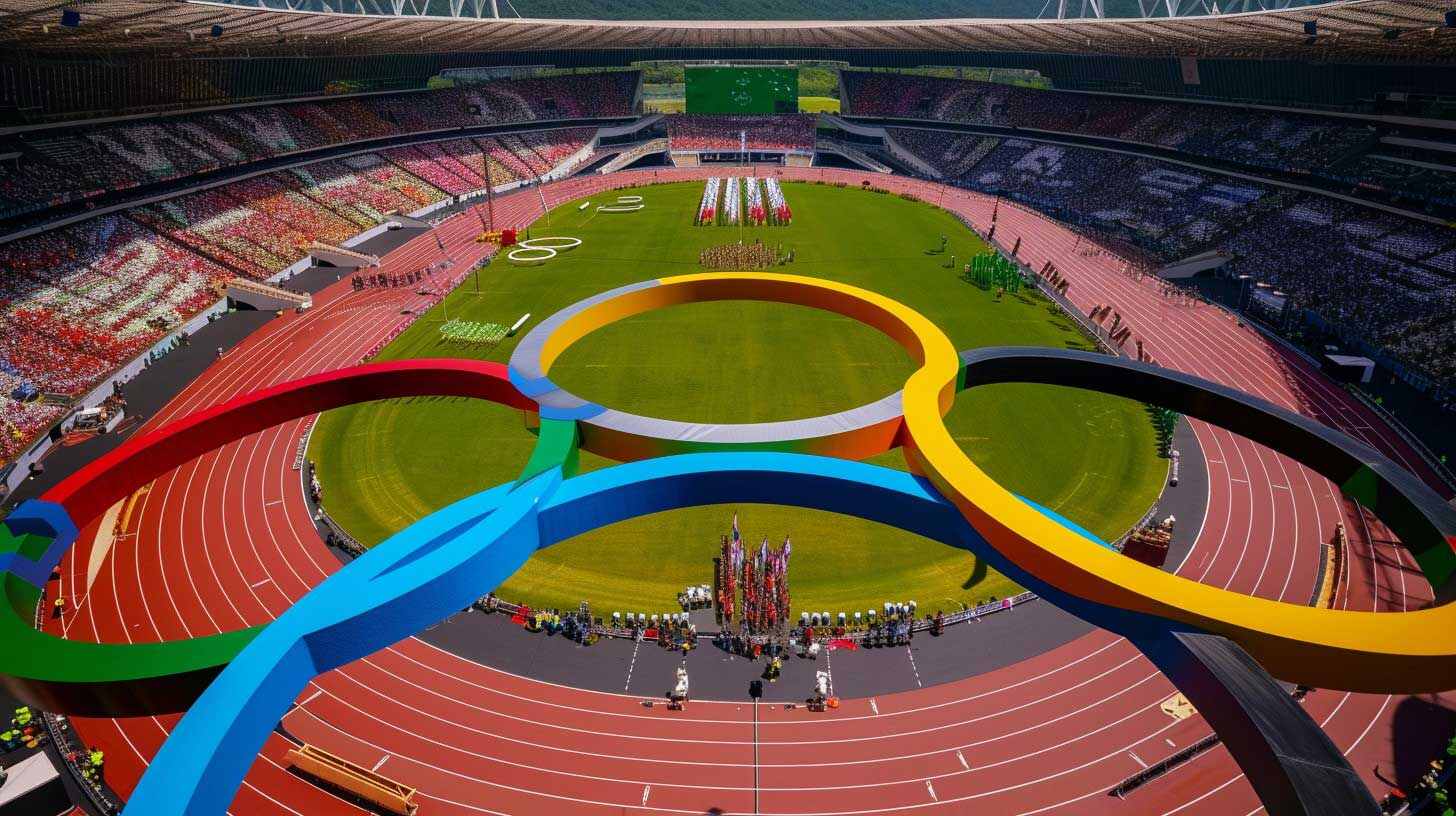The History of the Olympics: From Ancient Greece to the Modern Games
The Olympic Games are one of the most enhanced and almost every person in the world knows them. However Olympiads were not formed overnight and began thousands of years ago. Its roots extend from ancient Greece to where it has come to be known as a standard of the world of gymnastics and sportsmanship.
Ancient Times: The First Olympic Games
The genealogy of the common wealth games date backs in Olympia, to the first records of offense which is believed to be during 776 B.C. The performances started as a religious outburst specifically centered on the god Zeus paced out through the Ancient Grecians. Because the Greeks believed in this the sports activities were taken out as an event during a religious holiday commemorated after every four years.
Many events were sandwiched into the al Olympics but there were fewer participants to such sporting activities. However, some of the key events included:
- Stadion Race: A sprint terming from 200 meters to half a mile and was at first the single offering during the Olympics of ancient time.
- Pentathlon: Five different competitive events that include running, long jump, discus throw, javelin throw and wrestling.
- Pankration: Among the most demanding events, this was an amalgamation of boxing and wrestling.
- Chariot Racing: An event that was characterized by high-speed as horse-drawn vehicles were steered by charioteers and the outcome of this entertaining event was dangerous and dramatic
The Olympic tradition which is also known as the Olympiad is a way of measuring time. In Greece, the Ancient Olympics took place once every four years. Only free, Greek men were allowed to pit against each other, and it was encouraged that they wrestle in the nude to publicly display their bodies and celebrate physical muscle.
The pagan practices are said to have come to an end 393AD when Roman Emperor Theodosius I banned the Ancient Olympics. His empire was one that promoted Christian values and so, in his opinion, the old games were a distraction.
The First Person To Start The Modern Olympics: Pierre de Coubertin
Olympic games that we see today are said to have been initiated by a French educator by the name of Pierre De Coubertin which was said to have been inspired by the values of the ancient game. He sought to bring back those games in order to create an international understanding and peace through the means of sport. In 1894, Coubertin formed the IOC and in 1894 for the first time in Athens the modern Olympic Games took place.
There were 14 nations and 241 athletes participating in 43 events in 9 sports, which included athletics, cycling, swimming and gymnastics, during the first modern Olympic Games. With the rise of the Olympics, it heralded a new aspect in international sports with an emphasis on amateurism, fair play and universal involvement.
How The Modern Olympics Were Born
After its revival, the Olympic Games did not remain the same, they grew bigger and bigger in terms of the size, scope and the countries involved. Known as the first Winter Games, held in France, the 1924 Worlds featured winter sports for the first time, specifically skiing, ice hockey, and figure skating.
The following events are marked as turning points in the history of the modern Olympic Games:
- Inclusion of Female Competitors: Women were first able to participate in the 1900 Paris Games in events such as tennis and golf. However, the numbers have increased over the years and now having women is considered a practice of the Games.
- The Olympic Rings and Flame: Introduced in 1920, Olympic rings represent five continents that are inhabited as well as the togetherness of the athletes regardless of their home country. New in 1928, Olympic Flame symbolises the link between Greek Games and Modern Olympic Games.
- After World War II: the Olympics were held in London in 1948. Seeing athletes from various nations compete again espoused hope that the world could recover and grow in unity. For the first time, the Games were for something much greater than their respective countries the desire to achieve lasting peace. This was the beginning of the 20th century olympic movement.
- As TV technology evolved: so did the United States’ perception. The Games of the 1960 Rome Olympics broke ground in shifting the perspective of the Olympics as a series of games that could arise interest in only those practicing sports. The Games gained further interest and were pushed onto a bigger market and audience as a result.
Unfortunately, there have been many difficulties on the path to success. The Olympics have faced by a number of difficulties which includes the tragic terrorist attack during the Munich Olympics of 1972, that saw the death of 11 Israeli athletes. Despite this tragedy and others, there have been numerous victories. Some of the olympic triumphs include Usain Bolt’s record shattering runs, as well as Jesse Owens’ four gold medals won during the summer games held in Berlin back in 1936.
Olympics in their current stature — sprawling boyants that unite millions of people worldwide, for a brief period of time, regardless of their religion, race, ethnicity, or beliefs. The Olympics promote love and compassion that each one of us desires, which is more relevant today than ever before.
The International Olympic Committee has also implemented policies to enhance environmental protection, for instance, the Olympic Agenda 2020+5 strategy that aims at ensuring that the next Olympic Games will be environmental friendly. Gender equity has received more attention, with the Olympic Games Tokyo 2020 being the most gender inclusive in history in terms of nearly equal participation of men and women in number of athletes.
Conclusion: Lasting Impact of the Olympic Games
The movement from the Olympic Games that started in Greece to what it is today, a global occurrence, depicts that the Olympics is more than just a sporting event. It embodies the values of excellence, friendship, and respect, that are above human division and every four years, unite the globe.
These views have also guided me through my own career as in particular the Olympic games encapsulate human achievement and unity, no matter how much the world changes. The Olympic Games speak volumes of the true meaning of sports which encompasses healthy rivalry and the internationalization of sports.
Explore: Paralympic Games Paris 2024: A Celebration of Determination, Inclusivity, and Athletic Excellence



















